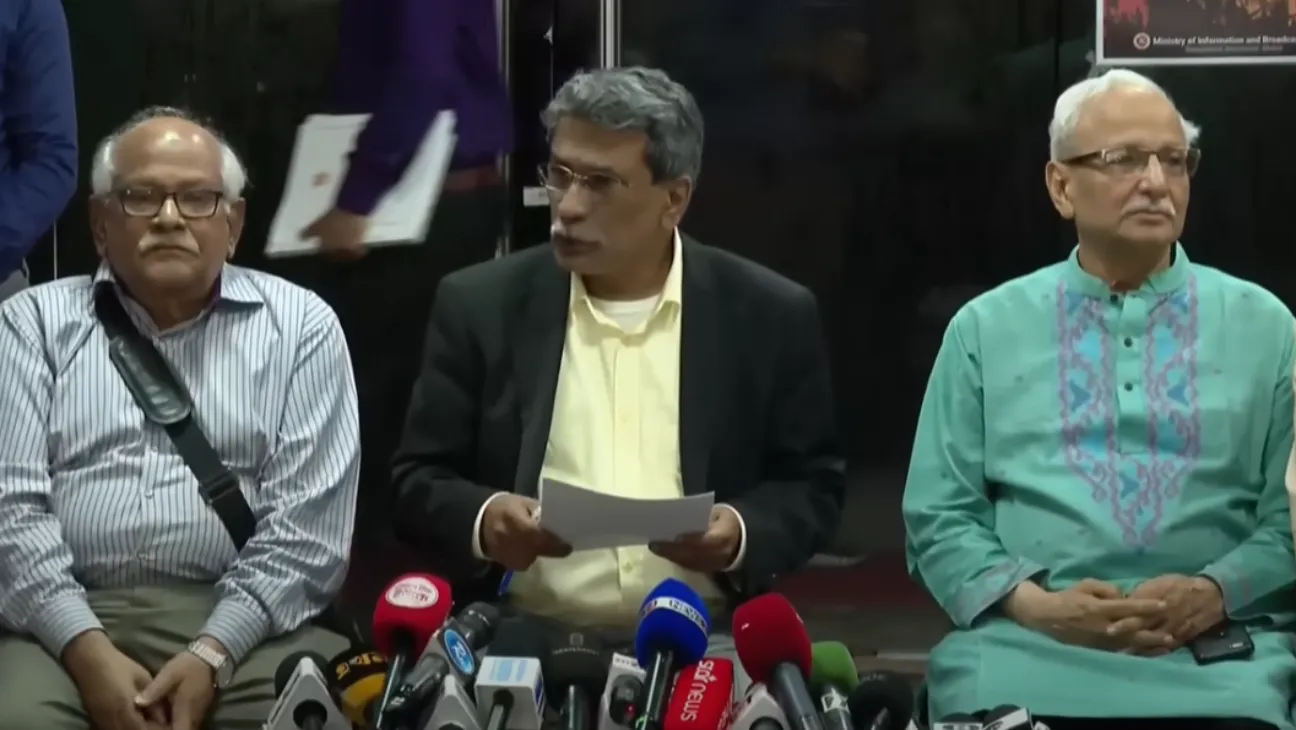The National Consensus Commission in Bangladesh has finalized decisions on 19 key political issues after weeks of discussions with political parties, Vice-Chairman Professor Ali Riaz said on Wednesday.
Speaking at a press briefing after the 23rd day of the second phase of talks, Riaz explained that the agreements will be incorporated into the upcoming July National Charter. Some of the decisions included formal notes of dissent from certain parties.
Commission members Justice Md Emdadul Haque, Dr Iftekharuzzaman, Dr Badiul Alam Majumder, Safar Raj Hossain, Dr Md Ayub Mia, and Chief Adviser’s Special Assistant Manir Haidar attended the session at the Foreign Service Academy.
19 Issues Agreed Upon
According to the briefing, the 19 issues cover a range of constitutional and governance topics. They include:
-
Amendment of Article 70 of the Constitution
-
Women’s representation in parliament
-
Decentralization of the judiciary and the Supreme Court
-
Rules on holding multiple positions of the prime minister
-
Constitutional provisions for appointing the Public Service Commission, Anti-Corruption Commission, Comptroller and Auditor General, and Ombudsman
-
Formation of an Upper House
-
Election method and powers of the President
-
Caretaker government provisions
-
Fundamental principles of state policy
Riaz said the most significant disagreement came on the proposal to increase the number of seats for women in parliament.
Party Reactions and Dissent
Several parties expressed reservations. Bangladesh JSD, BSD-Marxist, and the Communist Party of Bangladesh (CPB) boycotted the meeting by submitting formal notes of dissent. Representatives of the Gono Forum also voiced their opposition to the women’s representation proposal but chose to stay in the discussions.
Riaz emphasized that the commission is now encouraging political parties to deliberate on how these agreed issues can be implemented. “The Consensus Commission will act as a catalyst,” he said, adding that the body will reconvene with the parties at an appropriate time.
Also Read: Bangladesh Commission Proposes 100-Member Upper House via Proportional Representation
Participation and Timeline
Thirty political parties took part in the discussions, including the Bangladesh Nationalist Party (BNP), Bangladesh Jamaat-e-Islami, Jatiya Nagorik Party (NCP), Gano Odhikar Parishad, Gana Sanghati Andolon, CPB, Biplobi Workers Party, and Amar Bangladesh (AB) Party.
Chief Adviser Professor Muhammad Yunus kicked off the second phase of talks on June 2, leading the commission through a grueling 23 sessions with political leaders over the next two months.
Everything hammered out in those meetings will form the bedrock of the new July National Charter—a plan to overhaul the country’s government, constitution, and key policies.









